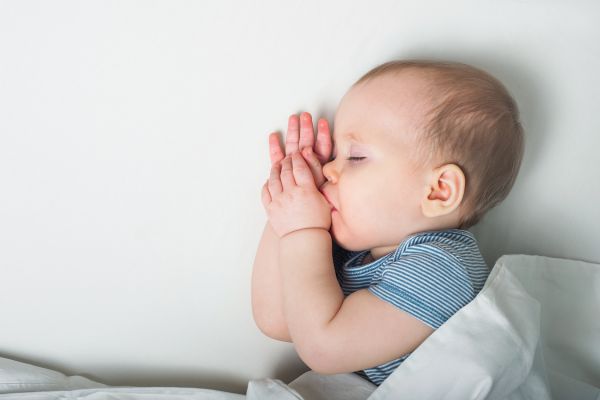Sleep is one of the most vital aspects of a baby’s early development, and where your baby sleeps plays a critical role in ensuring their safety, comfort, and healthy growth. As new parents navigate countless decisions about their baby’s care, one question often arises: should the baby sleep in a crib? Understanding the crib sleeping benefits can help you make a confident and informed choice for your family.
Creating a Safe Sleep Environment
One of the most important crib sleeping benefits is the ability to create a safe and controlled environment for your baby. Cribs are designed with safety standards that prioritize your child’s well-being. Unlike co-sleeping in adult beds, which increases the risk of suffocation or entrapment, cribs provide a secure space where your baby can sleep undisturbed. With firm mattresses and proper ventilation, cribs reduce hazards associated with softer surfaces and loose bedding.
Parents who choose crib sleeping can also maintain a clutter-free sleep zone. By following safe sleep guidelines, such as using fitted sheets without extra pillows or toys, you minimize risks like sudden infant death syndrome (SIDS). Knowing your baby is in a safe crib allows you to rest more easily at night, which is essential for your own health and energy.
Encouraging Healthy Sleep Patterns
Crib sleeping benefits extend beyond safety; they also promote healthy sleep habits for your baby. Establishing a consistent sleep space teaches your little one to associate the crib with rest and relaxation. Over time, this helps your baby develop a strong circadian rhythm, leading to longer and more restful sleep stretches.
When a baby sleeps in a crib, they learn self-soothing skills earlier. Unlike shared sleeping arrangements where parents might quickly intervene, crib sleeping encourages babies to settle themselves back to sleep after brief awakenings. This ability to self-regulate their sleep is invaluable as your child grows.
Supporting Parents’ Rest and Well-Being
The transition to parenthood is exhausting, and restful nights can feel elusive. However, one of the notable crib sleeping benefits is that it supports parental sleep quality. When your baby has their own dedicated space, you are less likely to wake up at every sound or movement. While room sharing in the early months is often recommended, placing the crib nearby still allows you to respond quickly without sharing the same sleep surface.
A well-rested parent is better equipped to care for their baby during the day. Emotional resilience, patience, and overall mental health all improve when sleep deprivation is minimized. Crib sleeping creates the foundation for both baby and parent to enjoy more restorative sleep.
Promoting Independence and Growth
As your baby grows, fostering a sense of independence is important. Crib sleeping helps babies become comfortable with sleeping alone, which is a critical milestone in their development. This independence can make future transitions to toddler beds or even their own room smoother and less stressful.
Babies who sleep in cribs also enjoy a sleep environment tailored to their needs. With adjustable mattress heights and sturdy railings, cribs adapt to different stages of infancy, supporting physical development and exploration in a safe way. Knowing that your baby is in a space designed specifically for their growth gives you peace of mind.
Reducing the Risk of Sleep-Related Accidents
One of the most significant crib sleeping benefits is the reduction in sleep-related accidents. Adult beds, couches, and other shared sleeping surfaces are not built with infant safety in mind. Soft mattresses, loose blankets, and gaps between cushions pose serious dangers. Cribs, on the other hand, are constructed to meet rigorous safety standards, providing a much lower risk of accidental injury.
By choosing a crib, you also avoid potential hazards like rolling off beds or becoming trapped between the mattress and wall. This secure setup allows parents to step away briefly without constant worry, knowing their baby is safe and contained.
Establishing a Consistent Bedtime Routine
Routine is crucial for babies, and crib sleeping supports the creation of a predictable bedtime schedule. Placing your baby in their crib at the same time each night signals that it’s time for rest. Over time, this consistency helps regulate your baby’s sleep-wake cycle and reduces nighttime fussiness.
A designated sleep space also makes it easier for caregivers to maintain routines even during transitions like travel or sleep regressions. Babies who are accustomed to crib sleeping adapt more easily to changes because they associate the crib with comfort and security.
Enhancing Long-Term Sleep Quality
Crib sleeping benefits are not limited to infancy; they can impact your child’s long-term sleep quality as well. Children who develop strong sleep associations early tend to experience fewer sleep difficulties later in life. By encouraging crib sleeping, you lay the groundwork for healthy sleep habits that can continue into childhood and beyond.
Parents who prioritize crib sleeping often notice their children falling asleep more easily and staying asleep longer. This creates a positive cycle where both parent and child get the rest they need, supporting overall family harmony and well-being.
A Strong Start for a Healthy Future
Choosing where your baby sleeps is a deeply personal decision, but understanding crib sleeping benefits can make the choice clearer. From creating a safe and secure sleep environment to fostering independence and healthy habits, the advantages are numerous. A crib offers a space designed for your baby’s comfort and growth, while also supporting your own need for restful sleep.
As you navigate the early months and years of parenting, remember that every family is unique. However, providing your baby with the gift of crib sleeping is a decision that supports their safety, development, and overall well-being—a strong start for a healthy future.

